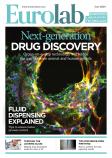The University of Tartu, host of Estonia’s National Biobank, has chosen the Revio HiFi sequencing system from sequencing solution provider PacBio to sequence 10,000 whole human genomes and unlock new insights from its populational health data. The announcement follows funding from the European Commission and the Estonian government to help Estonia adopt personalised medicine at scale and adapt public health systems to the biology of its population. The University will also support the European Union’s genome initiative, which seeks to boost innovation in healthcare across Europe.
10,000 whole human genomes will be sequenced and analysed by the Institute of Genomics at the University of Tartu using Revio. The data is expected to drive a new level of understanding about the genetics of cardiovascular disease, mental, reproductive and female health, cancer and rare diseases, and treatment outcomes. The institute has purchased three Revio systems, allowing them to reach their target of 10,000 genomes in the next two and a half years.
“The 10,000 long-read whole genomes will bring a new dimension of insight into the genetics of the Estonian population and push us closer to the Biobank’s goal of realising health benefits for people locally and internationally. We’re particularly excited about the possibilities for researching polygenic risk scores for cardiovascular disease and cancer, as well as predicting patients’ responses to medications based on their genetic makeup,” said Lili Milani, Head of the Estonian Biobank and Professor of Pharmacogenomics at the University of Tartu, Estonia. “The trial samples we received from PacBio were unmatched in terms of quality and genome coverage. We considered several other technologies but were most impressed by the high degree of accuracy, read length and multiomic insight of Revio. Combined with the greater affordability of Revio, it became the clear choice to support our goals.”
Founded in 2000, the Estonian Biobank holds more than 212,000 samples – 20% of the country’s adult population – reflecting its age, sex, and geographical distribution. To date, the samples for the Biobank have been genotyped using microarray-based methods. However, data generated via this method are lower resolution, had limited scope for detecting complex or unknown variants, and rely on reference genomes, meaning results may be biased towards participants from well-represented demographics.
The 10,000 new whole genomes sequenced using Revio will afford more diverse data and enable researchers to analyze complex variations, including repetitive regions and pseudogenes. Revio also offers researchers access to the epigenome; this second layer of genomic information is often unexplored, but has noteworthy implications for oncology since aberrant changes in methylation status are characteristic of many cells.
“I am delighted that the researchers at the University of Tartu have selected Revio for their multi-year, 10,000-sample project in Estonia,’ said Christian Henry, President and Chief Executive Officer of PacBio. “The team chose PacBio HiFi technology over other long- and short-read offerings because of its ability to sequence complete and accurate genomes at competitive economics and scale. This project is yet another example of Revio’s ability to deliver customers a differentiated solution in large, multi-thousand-sample whole genome sequencing projects.”
In addition to this 10,000-genome project, the Biobank team is looking to secure funding to sequence the entire biobank of over 200,000 samples to drive advances in health care globally.








